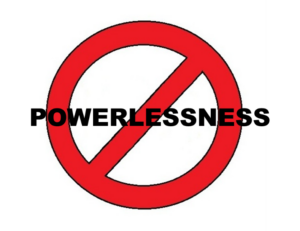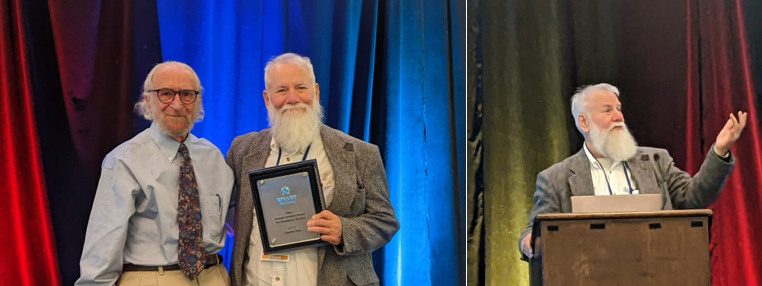by Margaret Speer, SMART Recovery meeting participant
 I believe in self-empowerment and the power of choice. I successfully used these techniques to remain mindful and sober. I’ve improved my confidence, self-acceptance, and increased my independent positive decisions. I lived my life too long and blind to the power I hold within myself. Sobriety through self-empowerment was the hardest journey I have ever accomplished. I developed a healthier lifestyle within my daily routine and recovery goals. I know it is going to take my lifetime to maintain my recovery in addiction to alcohol while developing patience for my impulsive behaviors.
I believe in self-empowerment and the power of choice. I successfully used these techniques to remain mindful and sober. I’ve improved my confidence, self-acceptance, and increased my independent positive decisions. I lived my life too long and blind to the power I hold within myself. Sobriety through self-empowerment was the hardest journey I have ever accomplished. I developed a healthier lifestyle within my daily routine and recovery goals. I know it is going to take my lifetime to maintain my recovery in addiction to alcohol while developing patience for my impulsive behaviors.
Since I was 15 years old, I have experienced complications with my involvement with alcohol. I was consistently battling, and failing with every attempt to stop my chemical use. Finally when I was 30 years old I woke up and removed my blinders – eyes wide open. I was experiencing the worst bone pain in my life. I can only describe it as a deep, constant, and a thrombosis throbbing ache. I felt as if I was in a pain coma. I accepted the fact that by self-medicating with straight vodka, I was taking the edge off the extreme and unbearable pain. Unfortunately, I was fueling the poison of alcohol to my body daily and for over a decade. Because I was so stubborn by the time I went to the hospital it was already too late. I was hospitalized for double pneumonia, anemia, dehydration and I was diagnosed with a bone disease called Avascular Necrosis. One of the primary causes of AVN is prolonged excessive alcohol intake. That is the hardest reality that I have, knowing I did it to myself because of my drinking, and this will be my life-long consequence. My bones will never recover and sadly it is not something that will heal itself or with medicine. They are only going to deteriorate with time. This reality I live with and it kicks me in the butt every day.
The date I embraced self-empowerment was October 18th 2013. I found myself sitting in a new psychiatrist’s office, at a new facility. My appointment time was 9:30am. I started admitting more truth than I had in quite some. I had been losing myself to my addiction to alcohol and I was also fighting my unmanageable highs and lows of bi-polar including other serious mental disorders. I was scared, yet she made me feel safe. Safety was another emotional feeling I had lost along my journey. I was ashamed and I was uneasy to hear myself admit this out loud. I pushed through my tears and I said: “My last drink was at 6am this morning. I took a nap, I got up, and I brushed my teeth. My home health care worker drove me here. I am trying to seek help with an addiction counselor and attending S.M.A.R.T. Recovery self-help meetings.”
Luckily she still decided to help me. There was a small gentle lecture given with care and compassion. She took a look at my medications and asked me for my opinion on which ones I felt were helping, and which ones I was not even taking. She also added new medications that I agreed I would try. She proceeded to tell me, “Go home. Take the medications, and take a nap!” I was floored with her concern and I went home and I did as I was told. Having some quiet time got me to think and it was in those moments I knew I had to make better choices for myself, my future, my health, my family, and my loved ones.
My recovery was not the traditional 12-step program. I’ve had a dozen treatments that labeled and treated me as though I had a disease and needed to be “fixed”. What I needed was based more on cognitive reconstructing of my thoughts and beliefs, thus enforcing my ability to decrease my negative impacts (internal and external) that have occurred in my life. I learned I am a fallible human being. The American psychologist Albert Ellis is the originator of Rational Emotive Behavior Therapy (REBT). Dr. Ellis is one of many I have to thank.
I went through the Stages of Change and I will explain them as follows: first there is Pre-Contemplation: For years I was drinking, in such a way I didn’t think it was a problem. Yet in reality it was. I always believed that no one knew. The next stage was Contemplation: That was when I was sitting in my psychiatrist office and the idea of change was intriguing to me. The day I was diagnosed with my bone disease was when I went into abysmal thought. I weighed out the positives and negatives of using. I thought about the possibilities. I could even further my education if I wanted to. I needed to be absolutely sure that I wanted to be sober and be clear-minded, a possibility that I fell in love with. The next step was Preparation: I could look for the first time and realize I could have a future. I knew I had a lot of hard work ahead of me. I started to seek out providers. I was currently in art therapy and seeking mental health professionals for my medications. I learned that an addiction counselor I knew of through S.M.A.R.T. recently moved to a treatment facility that believed in a behavior and thought cognitive reconstructing form of treatment that I wanted. Action: It is where I am now. I completed 22 weeks of REBT therapy. I have 1-on-1 meetings with my addiction councilor every month. This currently is the longest stretch of sobriety I have had since the age of 15. That to me is total action stage in working condition. I attend my S.M.A.R.T. meetings every week. I changed my personal relationships and engage in healthier activities that support my current recovery efforts. I am an artist and a painter, my dining room is my art studio. The local drug/alcohol free environment coffee house, became my clubhouse. I even enrolled in college to further my education, with the help of Vocational Rehabilitation. Becoming the stage of Maintenance: Which will be a constant work in progress. This is where I cope with my daily stressors. I have to remember to breathe, and then breathe again. I keep on seeking out a support network. I even joined the sister’s circle at the Salvation Army, in which I started to have healthier friendships with females.
I knew that S.M.A.R.T. stands for Self-Management And Recovery Training. I had been going on and off the program for 4 years. In the beginning, it was hard for me to understand the concept that thoughts cause feelings and behaviors. I used to believe I acted before thinking or didn’t have the time to think before I acted. Thus I was always acting on impulse. I needed to learn how to become more self-aware and how to slow down to process my current attitudes, assumptions, and beliefs. I learned to manage my emotions by figuring out the underlying thoughts. I have to remember that I have a choice!
Margaret Speer resides in Minnesota and is presently attending college, majoring in Paralegal. She says: “Years and years I tried the traditional 12 step program and it never worked for me. It wasn’t until I was introduced to SMART Recovery and outpatient cognitive re-constructuring that things made sense in my mind. I am working on 8 months clear headed and straight. SMART changed my life and saved my life at the same time.”




